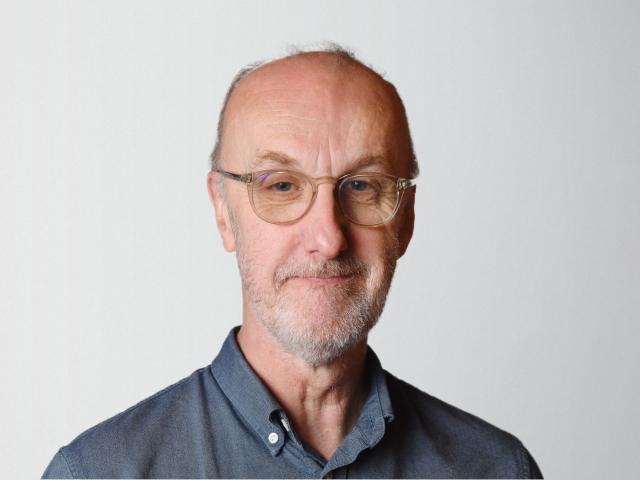
An unexpected journey into research leadership: Social Care Researcher Development Advisor Dr Martin Elliott
2 July
From social work to research leadership.
Dr Martin Elliott, Health and Care Research Wales Faculty Researcher Development Advisor (RDA) and Senior Research Fellow in CASCADE at Cardiff University, started his career as a social worker in a local authority.
Building a research culture in social care
With more than 16 years’ experience of social care with local authority children's services, Martin had a long-held interest in research which eventually led him to pursue a PhD, investigating the reasons behind Wales’s higher rate of children entering care compared to the rest of the UK.
He said: “When I decided I wanted to conduct social care research I really didn’t know where to start. I fired off a few emails to people I found on Cardiff University's website and luckily, I had a response from someone who supported my journey - which started with a simple cup of tea and a chat.
“My role as a Researcher Development Advisor (RDA) in the Health and Care Research Wales Faculty is to do exactly that.”
Supporting the next generation of researchers
RDAs are senior researchers who plan, deliver and evaluate researcher training programmes, and offer expert advice to Faculty members on their research career development. This position allows Martin to support the research leaders of the future which he had experience of at Wales School for Social Care Research where he focused on developing a research-minded approach within the social care workforce, particularly in children's services.
Martin also draws on his experience receiving funding from Health and Care Research Wales through a Social Care Grant to establish a social care research capacity building programme at CASCADE. This programme assisted those interested in research careers, including individuals with lived experience of being a looked-after child.
Martin continued: “Given the pressures that are on social care, there is more of a need now than there probably ever has been to do things that stem from research, which allows us to understand the populations that we work with better.”
Empowering staff through research skills
However, Martin recognises that not everyone needs a PhD.
“It is important to foster a culture of curiosity within health and social care services. If you knew all the answers now there would be no point in doing a PhD.
“I’m really proud of how I’ve supported social care practitioners to start their research journeys. There’s about four people now who have gone on to start their PhDs, in part, as a result from an initial conversation, signposting or support from myself. Academica can be intimidating, especially to those in our sector so it’s important to develop a supportive network of professionals. By upskilling staff to conduct research empowers them to make positive changes in practice without waiting for top-down policy directives.”
The Faculty's role in enabling change
The Faculty plays a role in facilitating these changes by providing resources and training programmes. For instance, workshops on conducting qualitative interviews or literature reviews can equip individuals with the skills to explore their ideas and implement positive changes.
The role of the Health and Care Research Wales Faculty is in not only supporting research careers but also empowering individuals with good ideas to make a difference within the healthcare and social care sectors.
“There are so many more options now as a result of the Faculty.”
Sign up to our weekly bulletin to discover how the Health and Care Research Wales Faculty can help enable your research career today.